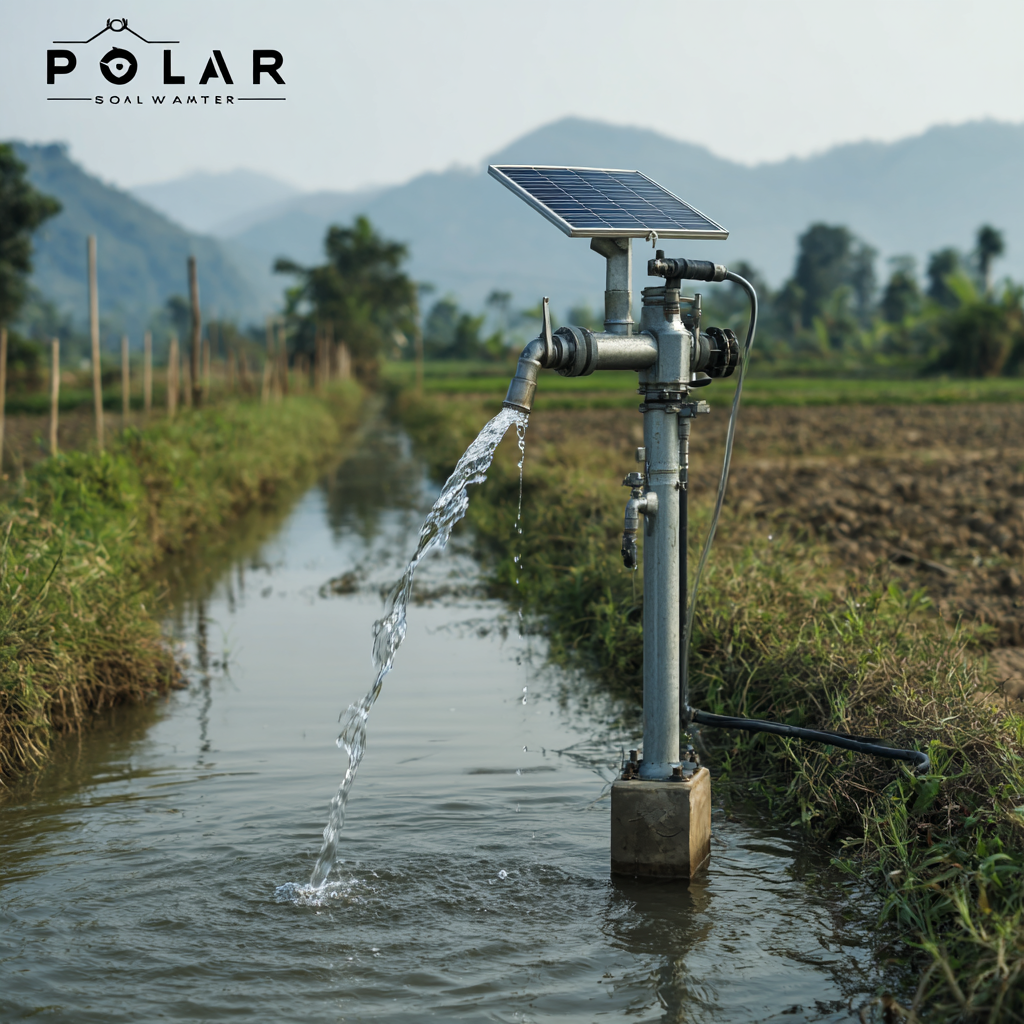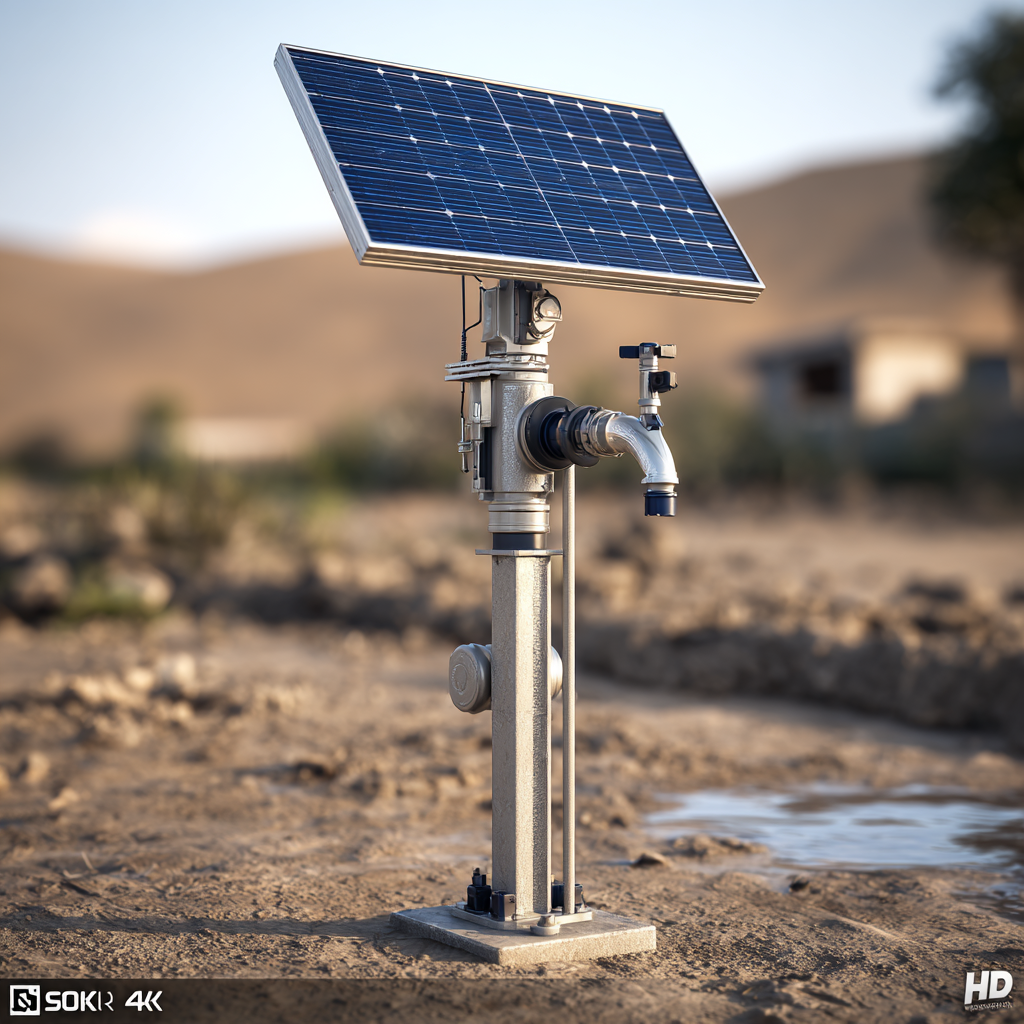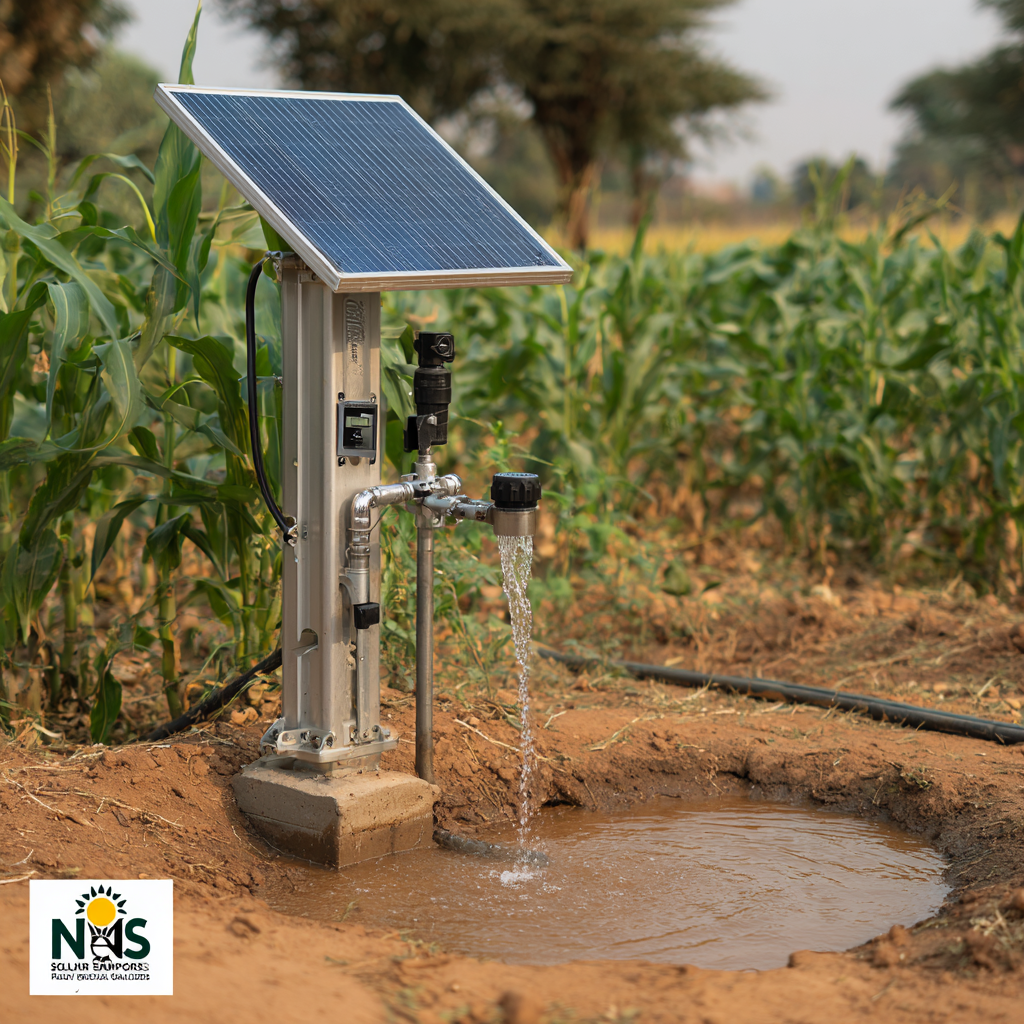Exploring the Advantages of the Best Solar Water Pump for Irrigation Needs
In recent years, the demand for sustainable and efficient irrigation solutions has led to the rising popularity of solar water pumps. These innovative systems harness the power of the sun to provide a reliable water source for agricultural needs, making them an ideal choice for farmers looking to optimize their irrigation practices. The advantages of using a solar water pump for irrigation are manifold, ranging from reduced operational costs to environmental benefits, all while ensuring a steady water supply even in remote areas.

With a focus on quality manufacturing from world-class Chinese factories, modern solar water pumps are designed to meet diverse agricultural requirements, ensuring that every farmer can access the benefits of this technology. In this blog, we will explore the key advantages of the best solar water pumps for irrigation, helping you understand why investing in this sustainable solution is not only a smart choice for your farm but also a step toward preserving our precious water resources.
Key Features to Consider When Choosing a Solar Water Pump for Irrigation
When selecting a solar water pump for irrigation, several key features should be taken into account to ensure efficiency and sustainability. The reliability and performance of a solar-powered pumping system can be influenced by environmental conditions such as sunlight availability and soil characteristics, as well as technical factors like pump design and power output. Recent studies show that 50% of Australian sugarcane farmers are projected to adopt solar photovoltaic systems for irrigation after ten years, highlighting a significant shift towards sustainable agriculture.
Additionally, implementing solar-based irrigation systems has demonstrated considerable benefits in regions with critical water scarcity. For instance, research indicates that these systems play a vital role in improving agricultural productivity, especially in areas like sub-Saharan Africa, where efficient water management is crucial. The economic analysis of a solar photovoltaic pump for drip irrigation on a 1-ha bean farm in a tropical climate has shown that such systems not only reduce reliance on fossil fuels but also enhance crop yield while ensuring climate-resilient agriculture practices. An innovative approach involving hybrid optimization has also emerged, aiding farmers in selecting optimal locations and configurations for their irrigation needs, thereby maximizing the potential of solar energy in agriculture.

Benefits of Using Solar Water Pumps Over Traditional Irrigation Methods
Solar water pumps are revolutionizing irrigation practices by offering substantial benefits over traditional methods. As agricultural challenges intensify due to climate change and water scarcity, these innovative systems provide a sustainable solution. According to a recent economic feasibility analysis, solar-powered irrigation systems are not only cost-effective but also significantly reduce greenhouse gas emissions compared to fossil fuel-based systems. Reports indicate that farmers utilizing solar irrigation experience a 30% decrease in operational costs, making it an attractive alternative for both smallholders and larger agricultural operations.

Furthermore, recent studies reveal that solar pumps enhance water access and efficiency, particularly in water-scarce regions like northwest Bangladesh. The adoption of solar-based irrigation facilities has shown a positive correlation with increased crop yields and improved economic resilience for many local farmers. In India, the impact of solar water pumps on agriculture has been profound, with reports highlighting how these systems contribute to boosting agricultural independence. As the agricultural sector continues to evolve, embracing sustainable practices through solar technology will undoubtedly play a pivotal role in ensuring food security and environmental sustainability.
Essential Components of an Efficient Solar Water Pump System
An efficient solar water pump system consists of several essential components that work harmoniously to provide reliable irrigation solutions. At the heart of the system is the solar panel, which converts sunlight into energy. The size and efficiency of the solar panels are critical, as they determine the amount of power generated for pumping water. Selecting high-quality solar panels can significantly enhance the system's performance, allowing for more effective irrigation even during cloudy conditions.
Another vital component is the water pump itself, which can be a submersible or surface pump, depending on the water source and the irrigation needs. The pump's capacity should align with the water demand of your crops, ensuring that your irrigation requirements are consistently met. Incorporating a charge controller is also important, as it regulates the power supply to the pump and protects the battery from overcharging. If your system includes a battery backup, ensuring the right battery type and size is crucial for storing energy when sunlight is not available. Together, these components create a robust solar water pump system that not only reduces energy costs but also promotes sustainable irrigation practices.
Exploring the Advantages of the Best Solar Water Pump for Irrigation Needs - Essential Components of an Efficient Solar Water Pump System
| Component | Description | Benefits | Efficiency (%) |
|---|---|---|---|
| Solar Panel | Converts sunlight into electrical energy to power the pump. | Renewable energy source, low operating cost. | 15-20 |
| Pump Controller | Regulates power supply and operation of the pump. | Improves efficiency and extends pump life. | 90-95 |
| Water Storage Tank | Stores pumped water for later use. | Ensures water availability during low sunlight periods. | N/A |
| Piping System | Conveys water from the pump to the irrigation area. | Durable material reduces maintenance costs. | N/A |
| Irrigation System | Distributes water to crops using methods like drip or sprinkler. | Maximizes water use efficiency and crop yield. | 70-90 |
Maintenance Tips to Ensure Longevity of Your Solar Water Pump
When investing in the best solar water pump for irrigation, maintenance is crucial to ensure its longevity and efficiency. Regularly checking the solar panels for dirt or debris is essential, as any obstruction can significantly reduce the system’s performance. Clean the panels with a soft cloth and mild soap solution to maintain optimal energy absorption. Additionally, monitor the batteries and wiring for any signs of wear or corrosion. Keeping connections tight and free from moisture will help prevent electrical issues.
Another important aspect of maintenance is monitoring the water pump itself. Ensure that it is free of clogs by inspecting the inlet and outlet for any blockages caused by sediments or algae. Regularly cleaning the pump will help maintain water flow and prevent damage. Schedule annual inspections to check for mechanical wear and tear, ensuring that seals, bearings, and other components are in good condition. By adhering to these maintenance tips, you can extend the life of your solar water pump, benefiting your irrigation needs for years to come.
Exploring the Advantages of Solar Water Pumps for Irrigation Needs
This chart illustrates the key advantages of solar water pumps compared to traditional irrigation methods, highlighting factors such as cost savings, environmental impact, and maintenance requirements.
Cost-Effectiveness Analysis: Solar Water Pumps vs. Other Irrigation Solutions
In recent years, solar water pumps have gained popularity as an efficient solution for irrigation, particularly in regions with limited access to traditional energy sources. A cost-effectiveness analysis reveals that solar water pumps significantly reduce long-term expenses compared to conventional irrigation methods such as diesel pumps and electric motors. According to a study published by the International Renewable Energy Agency (IRENA), solar-powered irrigation systems can lead to a 30-50% reduction in operational costs, making them an attractive option for farmers looking to maximize their profits while minimizing expenditures.
Additionally, the initial investment in solar water pumps is offset by their low maintenance requirements and the decreasing costs of solar technology. The National Renewable Energy Laboratory (NREL) reports that the price of solar panels has fallen by more than 80% since 2010. As a result, farmers who opt for solar water pumps can expect a return on investment within 3 to 7 years, depending on the scale of their operations. This financial advantage, coupled with the environmental benefits of using renewable energy, positions solar water pumps as a compelling choice for sustainable agricultural practices.
Contact Details
Address:
Solar Pump Solutions,
Borrisokane, Co. Tipperary, Ireland.
